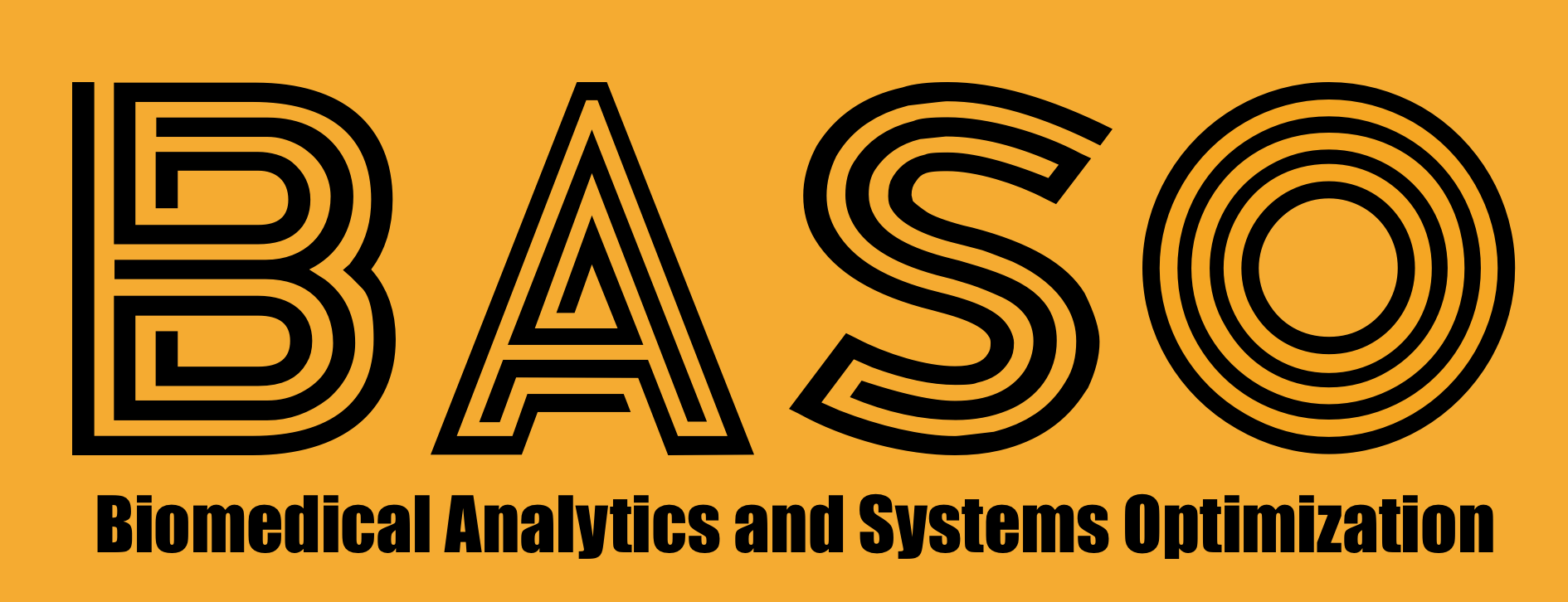Research
Our research lab profile comprises four key interdisciplinary research areas: healthcare operations management, biomedical systems modeling, biomedical data analytics, and smart connected health. The following provides a brief description of each field, which is modified based on online sources (e.g., textbooks, seminal papers, Wikipedia entries, etc.)
Biomedical data analytics, including descriptive, predictive, and prescriptive analytics, deals with the analysis of huge multi-mode (often poorly structured) datasets to discover complex patterns and use those patterns to forecast and manage future events. This emerging area holds great potential to holistically harness big data to facilitate the innovations on personalized medicine and precision medicine, and enhance the uses in medical practice.
Smart connected health, aims at accelerating the development and use of innovative approaches that would support much needed transformation of healthcare from reactive and hospital-centered to preventive, proactive, evidence-based, person-centered and focused on well-being rather than disease. It provides future generation solutions and breakthrough ideas in health care.
In addition, our focal methodological strength is on stochastic optimization, which refers to the minimization (or maximization) of a function in the presence of randomness in the optimization process. This intellectual challenging albeit stimulating area has been growing rapidly in popularity in recent years, thanking the advances in sensing and computing technologies.


